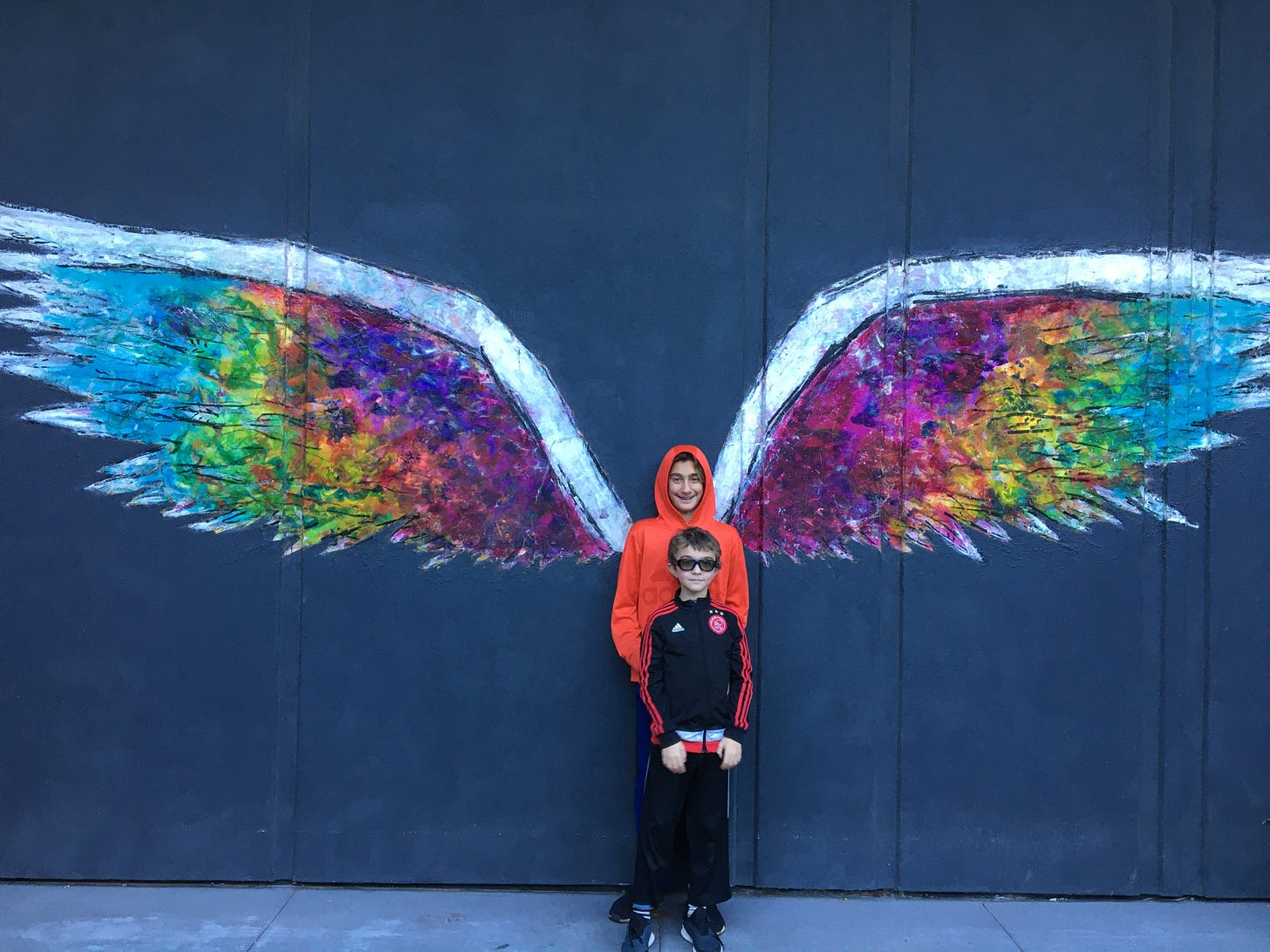Kai woke up terrified. He’d had another dream that he was drowning in plastic after his teacher had shown another climate documentary that provided no solutions.
This was around the start of the pandemic, when our anxiety was revving out of control. I could barely get out of my sweats let alone help him process. But as his mom, I knew I had to at least try, right?
Here are some of the things we tried:
We watched the creator of the Plastic Bank David’s Katz’s TED Talk.
We cleaned up at least one piece of plastic from the beach every time we took a walk.
We searched for climate documentaries that focused on solutions—surprise, surprise, there are very few.
But Kai was still having nightmares.
Calling on support
Stuck at home, I couldn’t jet off to some far-flung destinations to find the people cleaning up beaches, so I reached out for help. You see, moms tend to think we can do it all—I mean we’ve all balanced a baby on our hip while taking a work call, folding laundry and monitoring the stove, right?
But when I realized I was tapped out, I remembered one key truth few people talk about for moms. The only way I’d ever been successful at anything since becoming a mom was when I rallied folks to help me out.
One great aspect of the pandemic was that helpers were home and reachable! David Katz, creator of the Plastic Bank, even agreed to video call. When I asked him about how to help my kid through this, he paused like a sage sitting under a bodhi tree. I hung on his every breath, waiting for an answer, the answer to help dig my kid out of his despair. And then he started whispering how he never thought he could be the one to change the minds of the bigwig suits at SC Johnson and Henkel corporations.
Wait, what? The head of a multi-national organization that influences corporate leaders to tackle our planet’s plastic problems didn’t think he could do it when he started.
“I realized I didn’t have to be the person who could communicate in all those languages and deal with hundreds of millions of dollars, or corporate heads,” Mr. Katz said, “I just had to become the person who could become this person. I wasn’t the person yet. But I could figure it out. I had to draw on the courage to be vulnerable. That’s what the world needs.”
So, I just have to become the person who can become the person I want to be?
So maybe I wasn’t yet the mom who could combat my kid’s anxiety, but according to him I could become this person.
OK. So, how?
I started thinking about when I was twelve. Sure I wasn’t going into puberty during a global pandemic, and I definitely wasn’t aware at that time that our planet was headed into a climate emergency, but I did go through the act of becoming a whole different person.
During the fear and mood swings I thought of how my parents gave me space to feel what I needed to feel—the fear and anxiety, that weird euphoric joy and the terrible emotional crashes—and I wondered if all Kai needed was someone to talk to about his fears and instead of trying to “fix” it, let him move through the emotions so maybe, just maybe he’ll locate his own path to a better world.
Stories of hope
Instead of forcing climate documentaries and virtual protests down my kids’ throats, I just started dropping stories of hope into our dinner conversations. I’d tell them about Kristal Ambrose, who successfully lobbied the Bahamas government to ban single-use plastics when she was a teenager. Or these kids fighting to eradicate plastic waste from their communities. Or the scientists who found algae can eat plastic waste.
And while this didn’t delete Kai’s anxiety, it helped him not wallow in it until I could figure out how to become the person who could help him fix this issue.
Before we got off the call that day, David Katz added, “I can’t make you do anything. A man convinced against his will is of the same opinion still. But if I find the incentive for you, then I don’t have to teach you anything, and then you have a tool to take you from your back to your feet. A tool so you can run.”
This week’s action
Let’s build a toolkit to help our kids run toward hope. Talk to them about the environmental issue that most unnerves them and then start dropping stories of hope into conversation in a casual way and see what happens.
Share with us any great stories you unravel so we can share it with our kids too.
xo Michele
Friends: I need a favor. First off, thanks for reading. It means a lot to know you open and read my musings about parenting in the Anthropocene. Second, I’m hoping to expand the reach of this newsletter to help promote (and ultimately sell) my book. To do this, I need a larger subscriber base. I’m hoping you, my small but mighty community, can help. Would you be willing to help share this newsletter into your networks of parents looking for hope in a warming world and urge friends to subscribe? Thanks a million!




